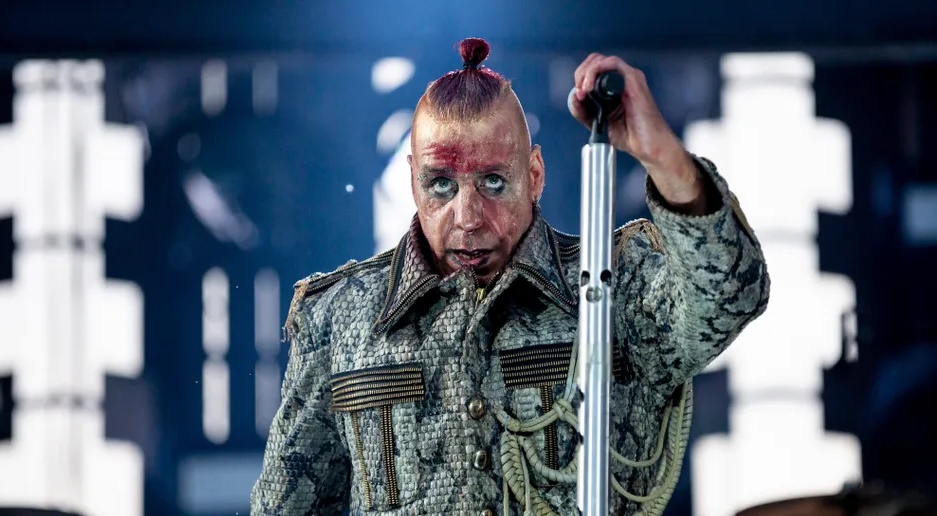Rammstein: Why the investigations against Till Lindemann were stopped
The public prosecutor's office in Berlin has closed the investigation against Rammstein singer Till Lindemann.

What does that mean for him, but also for the media like SPIEGEL, which reported on the allegations against him?
Rammstein singer Till Lindemann posted a link on Instagram on Tuesday afternoon. It led to the press release of the Berlin public prosecutor’s office. She said she had dropped the investigation against the Rammstein singer “on suspicion of committing sexual offenses and violations of the Narcotics Act.” Lindemann wrote: “I would like to thank everyone who waited impartially for the investigation to end.”
What does that mean? Why did the prosecutor make such a decision? And shouldn’t the media like DER SPIEGEL report on allegations of sexualised violence against Till Lindemann? A classification.
Why did the public prosecutor investigate at all?
At the end of May, the Irish woman Shelby Lynn alleged on social networks that she had been given drugs in her drink at a Rammstein concert. She reported gaps in her memory and posted photos of injuries to her body. In addition, an employee brought her into a small room during a break in the performance, apparently to have sex with Lindemann there. Lindemann accepted her no. Rammstein and Lindemann deny Lynn’s descriptions.
The media then researched these allegations and those of other women. First, the research network of NDR, WDR and “Süddeutsche Zeitung” reported, a little later “Welt am Sonntag” and SPIEGEL.
The allegations involved a perfidious casting system around the band, which apparently served to provide front singer Lindemann with women for sex. It was about alcohol and loss of control and the question of whether Lindemann had abused his power over younger, female fans.
Based on the media reports, third parties who did not make their own allegations reported Lindemann. It is unclear who these people are. In mid-June it became known that the Berlin public prosecutor’s office had initiated investigations.
Why was the investigation stopped?
The public prosecutor said that “the evaluation of the available evidence” had not provided any clues. However, she also made it clear that her evidence was mainly the media reports. Because: Not a single woman who accuses Lindemann of sexualized violence could be questioned by the investigators. According to the public prosecutor, they only spoke to journalists.
In fact, the public prosecutor’s office had asked the media to provide the names and addresses of sources, including SPIEGEL. For reasons of source protection, we refused with reference to our right to refuse to give evidence, as did the other media apparently. However, we passed on the prosecutor’s request to the informants with whom we were in contact.
According to their press release, the investigators also read files on the case of the Irishwoman Shelby Lynn and spoke to the YouTuber Kayla Shyx, who had commented on the allegations in a video. This could not have »described any personal experience of criminally relevant incidents«. However, Shyx had never claimed that, but only described the casting system.
In the case of a woman who is said to have entered into a sexual relationship with Lindemann at the age of 15 and about whom SPIEGEL reported, the public prosecutor’s office writes that this witness also remained anonymous and “therefore could not be questioned”. In her case, however, the public prosecutor’s office had not even asked SPIEGEL.
If new evidence arises, the public prosecutor’s office can resume the investigation at any time up to the statute of limitations.
Why didn’t the women talk to the prosecutor?
There are many reasons why suspected victims of sexualized violence are more likely to talk to the media than to the judicial authorities. Some are afraid. Because if they testify, their names will definitely end up in the files – and thus also with the other side. The law firm that hired Till Lindemann announced very early on that it would not only take action against the media, but also against the individual women who had made allegations. Some cannot afford a lawyer who could accompany them in a possible trial. And some fear the mental strain that can go hand in hand with processes that can sometimes last for years.
Shouldn’t the media have reported on it?
This conclusion cannot be drawn from the public prosecutor’s decision to terminate the case. Their investigations involved criminal law, and journalistic texts have to meet media law criteria. It is the job of journalists to investigate indications of alleged misconduct – regardless of whether there is already a legal process or even a judgment.
This applies to corruption or white-collar crime as well as to abuse of power or sexualised violence. If there is enough reliable evidence, it can be reported on as part of a suspicion report – you can read more about it here.
Whether the requirements for the admissibility of such reporting were met in every respect in the Rammstein case is currently being debated in the civil courts. SPIEGEL is also currently prohibited from making individual statements for which the Hamburg Regional Court does not see sufficient grounds for suspicion. The core accusation of a perverse groupie casting system is unaffected by the omissions.






Bir Yorum